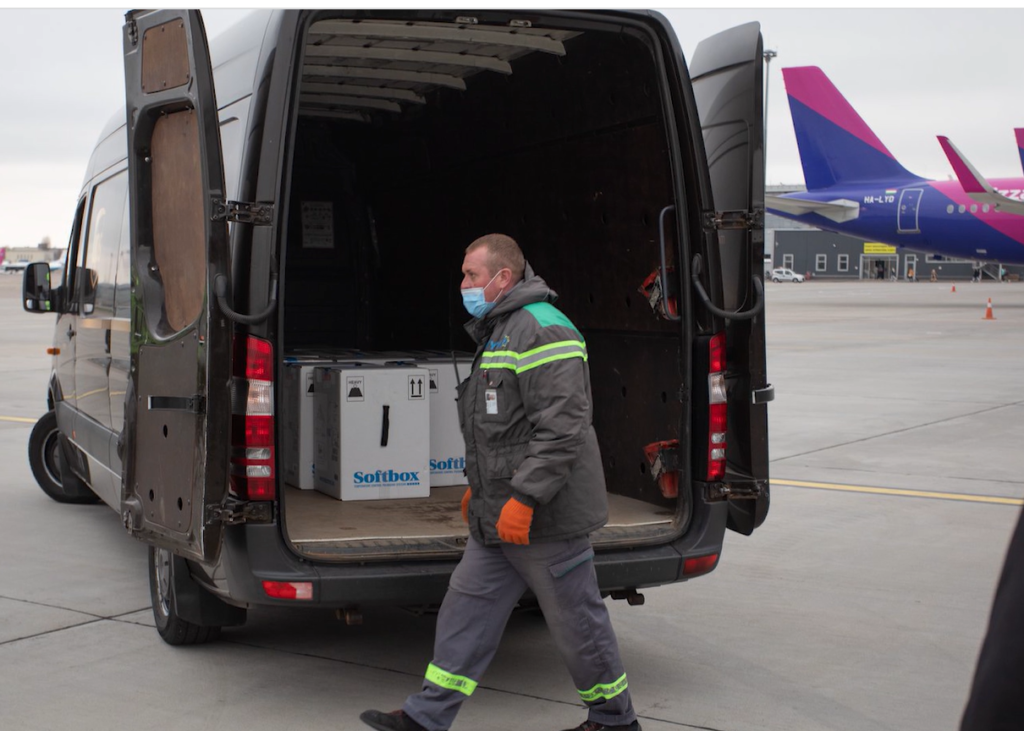Keeping Medicines Flowing in Ukraine during a War
Keeping Medicines Flowing in Ukraine during a War

Russia’s invasion of Ukraine has had devastating consequences for its citizens as well as core institutions in the health care sector, with hundreds of facilities decimated from bombing and other attacks.
Management Sciences for Health’s (MSH) years-long partnership with the government to implement the USAID Safe, Affordable, and Effective Medicines for Ukrainians (SAFEMed) Activity laid the groundwork to help the country adapt swiftly to tackle these challenges.
Before the invasion, SAFEMed was helping strengthen the country’s pharmaceutical sector through activities such as boosting transparency and efficiency while lowering the cost of state purchase of medical goods with the creation of a Central Medical Procurement Agency. The end goal is ensuring that patients can access lifesaving medicines for HIV, TB, COVID-19, and more.
As the war began, the Ukrainian Ministry of Health asked MSH to assist in setting up and managing the delivery of humanitarian medical supplies, from essential medicines to emergency first aid kits and hospital stretchers.
More than 12 million Ukrainians fled their homes, including most of SAFEMed’s project staff. Yet they continue to carry out their work either outside the country or in the safer western regions. Meanwhile, all male staff had to remain in Ukraine due to restrictions that prevented men aged 18–60 from leaving the country. Some heroically chose to stay in Kyiv even when active fighting was happening nearby in the early days of the war. They did so to continue providing critical support to the ministry as it responded to the growing humanitarian crisis. Many staff continue to support the war effort in their spare time, while one staff member was called for military service.
MSH is providing technical support to design, coordinate, and monitor the supply chain system necessary to deliver a substantial proportion of the humanitarian medical assistance arriving in the country from governments and private donors in Europe and North America.
At the request of the health ministry, MSH has identified and contracted 10 public and private warehouses to store and sort goods coming into Ukraine as well as three private-sector logistics providers to distribute the goods to health care facilities across the country. The supply chain was quickly put in place due to the existence of an agile commodities information system, developed with MSH support over the last several years, that manages supply and demand of state-purchased medicines.
Through the end of May, with MSH support, more than 6,500 tons of supplies worth $266 million had been distributed to health care facilities throughout all regions of the country.
Ukraine’s vibrant domestic pharmaceutical sector, a $2 billion market before the war, initially broke down. Trucks couldn’t make deliveries. Manufacturing sites were bombed and destroyed. More than half of all pharmacies were unable to dispense medicines at one time or another. Slowly, as the war became more localized, the pharmaceutical sector is beginning to bounce back.
Teaming with a local law firm, MSH helped shape legislation to ease barriers to importing medicines and accepting donated products. After the government allowed medical students to dispense treatments, MSH partnered with local universities to provide necessary training.
SAFEMed staff and partners are continuing to help Ukraine respond to the crisis and to reform its pharmaceutical sector with agility and resilience and by working across sectors to ensure essential services.